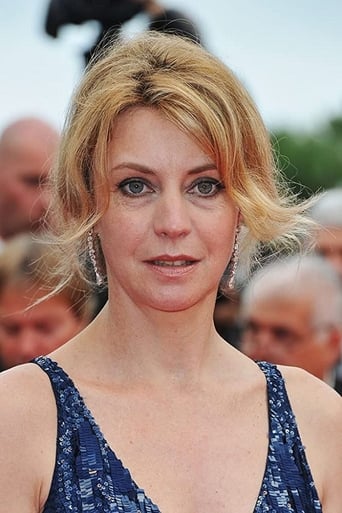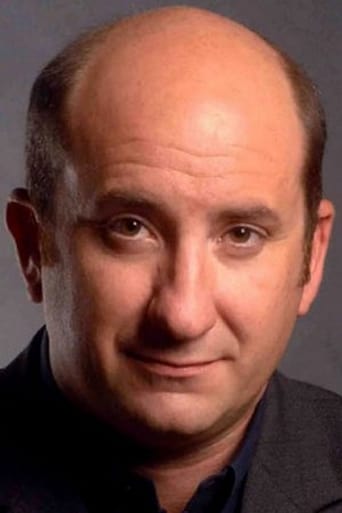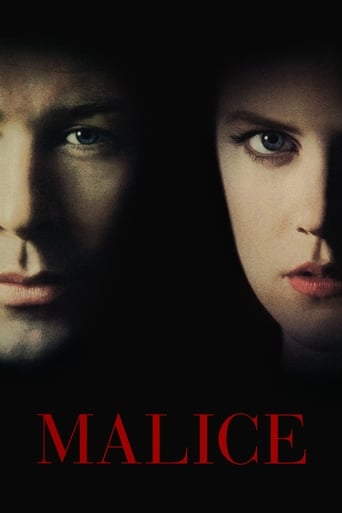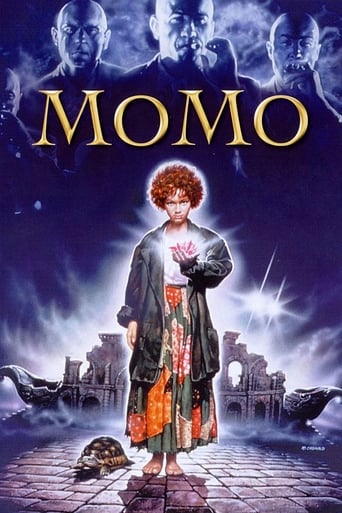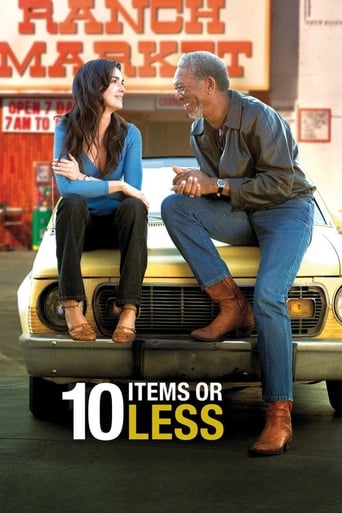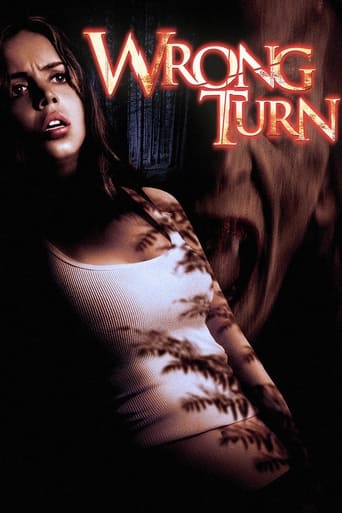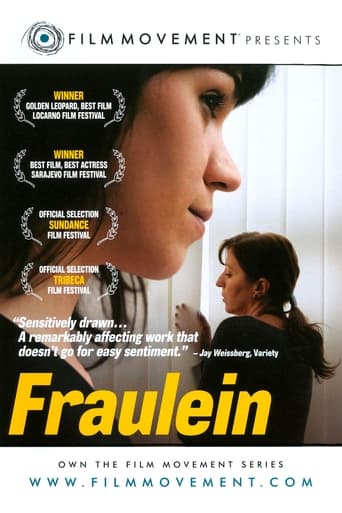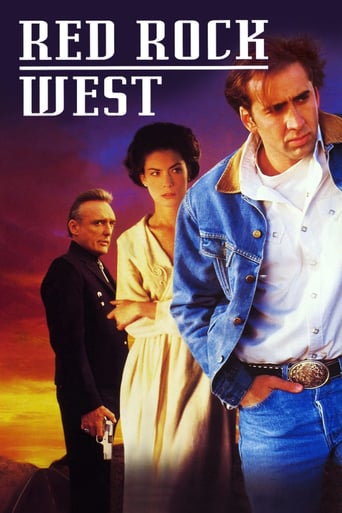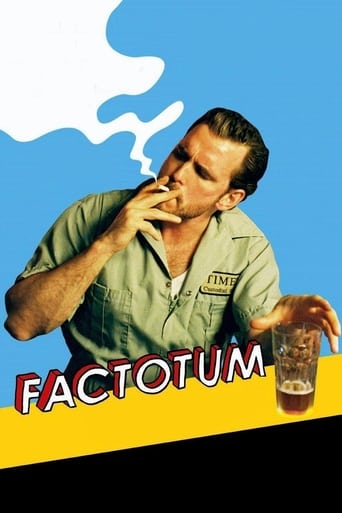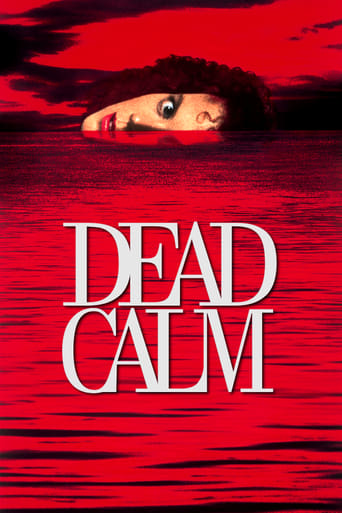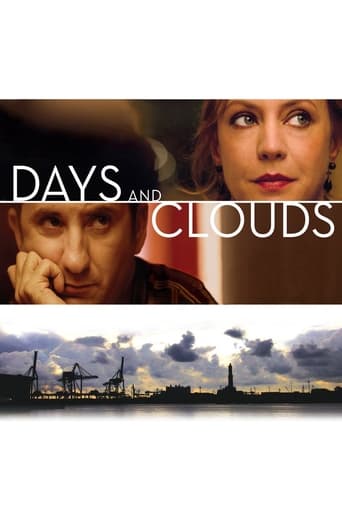

Days and Clouds (2007)
Set in Genoa, the film concerns the financial struggles and emotional strain that occur after Michele loses his job. He and his wife Elsa are forced to give up their affluent lifestyle and cope with the tensions of moving into a smaller home, finding new work, and making sacrifices.
Watch Trailer
Cast


Similar titles
Reviews
Ah, this movie -- came at the end of a long depressing string of the worst of the above. I had gone through the good stuff already and was well into the desperate search for therapeutic diversion. But I kept looking at one awful two-hour stretch of dreck after another. Crank, and Duplicity, and worst of all Surveillance were just making me feel sick or tired or both -- sick and tired. Then I took a chance on one of those movies with a single box on the Blockbuster shelf. It had the usual ivy garland decoration that meant it had at least shown in some festival or other.I was reluctant to make the effort to view something at the end of a long engineering workday that required me to put my good glasses on and read subtitles and get into the rhythms and melodies of Italian. I'm accustomed to Spanish and French, Japanese, Chinese, but Italian? Did I really want to go there? I am so glad I did.This movie reminds me of the French relationship movie from the 70s, "Cousin, Cousine." It's an understated but starkly realistic look at two married people rediscovering their meaning to each other after a sudden dramatic change in their circumstance. The man, something of a schlub, has lost his job -- forced out a company he co-founded. He is accustomed to being the boss and being powerful, and now he's nothing.Even in his family dynamic, with his daughter especially, he tries to remain in control and be tough. His beautiful and brilliant wife has just earned an advanced degree in art history and is involved in a major project of her own devising. But it doesn't pay the bills, and she must forgo this work to take a job at a call center, with a second job at night as secretary in a shipping office while the staff clerk has a baby. She disappears from her friendships out of embarrassment. They move from a house to a dingy flat in a city complex. He takes a series of crummy temp jobs.How these two adapt is the movie.Like I say, what movies should be. No guns. No chase. No 'splosions. No car wrecks. No artificial crises involving machines or villains or weapons. But there are intense moments between family members that will make the hair stand up on your neck. There is emotional pain and people reacting in ways that you will recognize -- withdrawal, anger, paralysis, escape. There are touching moments that come from very ordinary actions, like offering a bottle of wine, commenting on the morning brioche, or calling someone and leaving a voicemail message.The two last sentences of the movie, spoken by the man and woman while lying on a floor looking up at a ceiling, are perfect.
After three movies that elevated him from d'essai circuits in terms of box office results, director Silvio Soldini returns to more dramatic and current themes closer to his debuts. Middle-class families can't afford financial problems, that's seems to be the sense of the movie. Step after step all certainties and habits of a Genova's well off family, crawl down after Michele (Antonio Albanese) lost his work. Soldini as always, has the sensibility and the touch to treat such difficult material, but nevertheless the script (of the same author with Tiziana Leondeff) never reach the audience. The story advances laboriously, the non-core characters are just sketched and stereotyped, and most of all the main character, Antonio Albanese, not has the necessary depth, his Michele seems a man who could not accept the consequences of his actions, ever astonished by the behavior of the rest of human race, including members of his family. Early the movie slips toward a foreseeable descent, tell the truth, in the end there's a bit of relief. Great waste of talent for the performance of Margherita Buy, as always measured and effective. Awful soundtrack, by the way.
Times are tough right now, mirroring the era of The Great Depression. Financial security is a ghost, friendships and relationships are tested by walking the razor edge of insolvency, and according to the 'popular movie' polls the escape for many is in the darkened movie houses with comic hero or animal animated mindless safety net entertainment. Not so with the very brilliant film DAYS AND CLOUDS written (with Doriana Leondeff, Francesco Piccolo, and Federica Pontremoli) and directed with immaculate attention to detail by Silvio Soldini (BREAD AND TULIPS, etc). Soldini recreates the global financial nightmare in the form of an examination of one family's fracture and consequences. It resonates despite the depressing story, offering a glimpse into the universal ties that bind us at this moment. Elsa (Margherita Buy) is graduating from Art History and Restoration school and seems to be a woman on top of her league, complete with surprise gifts and a celebration staged by her husband Michele (Antonio Albanese). Waking up the morning after her congratulations party, Elsa is ill with a hangover, but even more shocked when Michele breaks the news to her that he has been out of work for two months, ashamed that he has lost his company and his job, hiding in the couple's boat during the day. There is no money left and the couple must face losing their home and are forced to take on menial tasks to survive. Pride prevents the couple from sharing their financial downfall with friends and with their one child - Alice (Alba Rohrwacher) who has elected not to pursue education in favor of waiting tables in a restaurant she has invested in with friends. The tension of keeping the secret to themselves causes mounting friction between the couple and events that would have never happened had they shared their misfortune with friends and family bring their relationship to a near fatal end. How they survive is touched, quietly and quickly and gently, at film's end. Soldini spares no pain in the responses of his characters' misfortune, but at the same time he allows each character to emerge from ideal married tropes to completely human victims of financial ruin. Buy and Albanese are triumphant in their performances as the married couple caught in the crumble of decline. But there are fine performances by Rohrwacher and Fabio Troiano as her lover Riki, and Carla Signoris as Elsa's closest friend Nadia, and actors playing two ex-employees of Michele who provide a window of friendship in Michele's time of desperate need. The cinematography by Ramiro Cirita and the musical score blending opera and folk music by Giovanni Venosta enhance the motion of the film that though just under two hours in length, appears more succinct. Silvio Soldini has taken a topic that affects us all and polished into a film that is bound to touch every viewer deeply. Highly recommended movie from The Film Movement. Grady Harp
This subtle movie is worthy everything it deserved: worthy the price of admission, the praise of the critics, the success at Roma Film Festival. Its subject is highly topical nowadays in Italy: the job insecurity, who brings uncertainty in the love life, too. But the movie deserves your attention especially because the two leads' acting skills, Margherita Buy and Antonio Albanese.Albanese, an accomplished comedy actor, shows good versatility as drama actor, but the whole scene is stolen by Margherita Buy, as Elsa, a woman who finds the strength to hold on and carry her family. Buy is prisoner of the failed wife's role, but this time she indeed excels. It's truly wonderful watching her fighting everyday to conciliate his husband and daughter.Alba Caterina Rohrwacher, who plays Alice, Elsa and Michele's daughter, is a very fine brand-new actress: she portrays a type of girl who is usually ignored in movies.Finally Italian cinema starts again to have its own dignity, and "Giorni e nuvole" (the title can sidetrack a lot) contributes to its revival.


